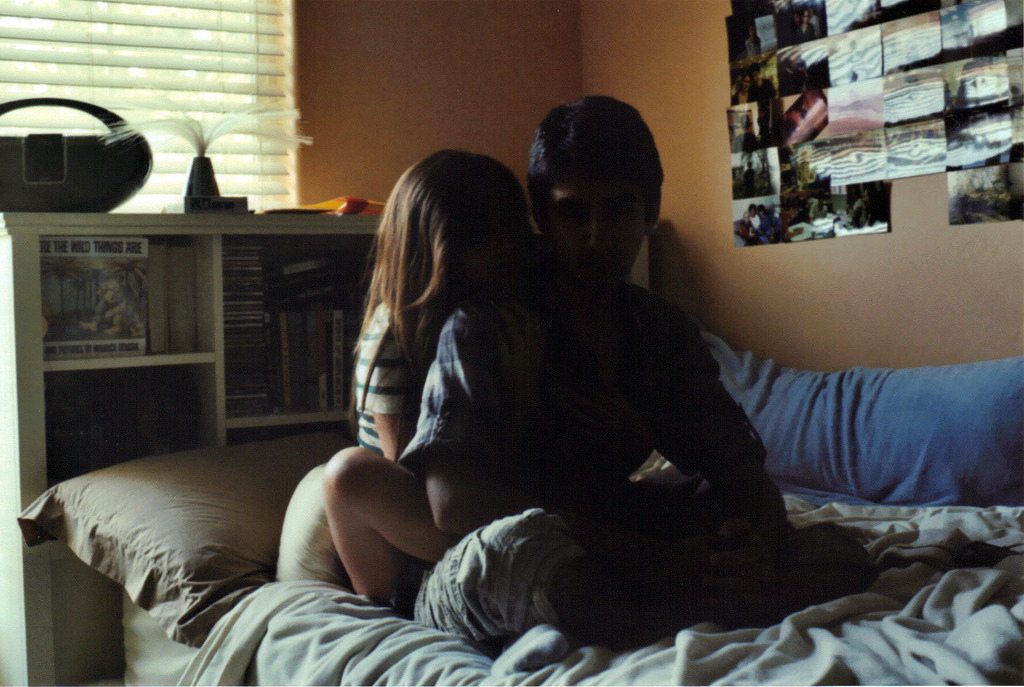
Nearly three years ago, I met a boy who didn’t feel things. He and I called them “doors” — mine were always open, emotions free-flowing whenever I stayed up late to talk to him; and his were always closed, except for moments when my words could pry him open and he felt pinches of things he could name.
He was strange, and I liked strange people. He invested in conversation and that’s how I knew he would probably get it. People who appreciate words usually get it. Now, pay close attention.
One afternoon we were talking about time and how time is, essentially, a concept. Everything about time is a hundred-percent man-made, from the clock to the calendar and the idea of seconds and years. As we guessed at how the first person invented it, we tried to define time in terms of things that actually were rather than things that were supposed.
Are you still with me? If we were talking about, maybe algebra, we’d have to define unknown values in terms of something that is sure before we can go on. And that’s what we were trying to do. We were trying to prove the nature of time–something we weren’t sure really existed–by recreating it with parts that we were sure of. Parts like change.
Now, change is scientific. When we get down to the subatomic (or whatever the smallest unit is these days, I’m not sure) level, everything changes. There are poems going around saying that our bodies change completely every six months or seven years; and while I’m not sure if that’s absolutely true, the point of the matter is that everything moves. Even in an empty room, things happen. Dust gathers, air moves. I don’t know much about space, but my romantic notions of stars mean that I imagine space as changing and moving too. Everything changes.
Everything.
So he and I decided that time was nothing more than the unit at which change took place.
And we said what if, hypothetically, we could have a room where absolutely nothing moved? There was no air, dust and mold didn’t gather, atoms for some reason didn’t move, nothing breathed or grew old, and everything was incredibly and perfectly still. Would time exist in this little room?
Obviously, there was no way to make our little experiment happen. But we chose to believe that time didn’t happen in that room because change didn’t happen in that room. That was comforting because, within the expanses of our ignorance, we made believe a supposed impossibility. We made time stop existing, at least in theory. Or maybe just in our imagination.
Now, I split this train into two.
First: I know you probably aren’t reading this, M, but I want to pretend that you are. When you left, you didn’t say goodbye, but you did say you would be gone for two years. Well, it’s been two years. And I realize we never talked about how much change could happen in that much time. Or whether you would come back to see it.
I’ve changed. I bet you have, too. But you’re still the strangest person I know, although I’ve tried hard to find someone close. I wonder if you still don’t feel much. I still feel too much, and I remember you all the time, M. I’m sure you’ll get it. You always got it better than nearly anyone did. I hope that doesn’t change either, no matter how much time passes by.
Second: in a daydream, somebody asked me what I would like to do if I could stop time for a little while. I brought back this time-theory to mind and I decided I couldn’t answer that question because, as long as I’m still doing something, then time is still passing by.
Instead, I asked my daydream friend if feelings counted as change, as something happening, moving, or being done. Because if it didn’t, then that’s what I want to “do” with stopped time. I want to find the happiest, most important second of my life, and just pause. Thoughts won’t flow, feelings won’t change, nothing will interrupt to ruin it, and everything will just stay suspended in existence seemingly infinitely.
Friends, maybe that’s what forever really is. Maybe we won’t find “forever” in trying to make things last a long time, but instead in finding one second that is good enough and letting it hang in its place, unbothered by the ones that come before or after it. Maybe that’s it. I like that.